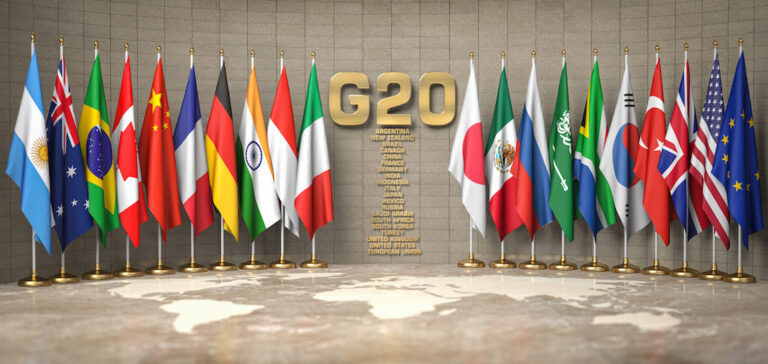The energy ministers of the G20 countries, meeting in India on Saturday, failed to agree on a timetable for gradually reducing the use of fossil fuels (oil, gas, coal).
G20: the stakes for coal and differences over fossil fuels
Their final declaration, published at the end of the meeting in Goa, does not even mention coal, one of the major contributors to global warming. But coal is also one of the main sources of energy for many developing economies, including India, the world’s most populous country, and China, the world’s second largest economy.
This failure to reach agreement comes at a time when global temperatures are reaching record levels, causing heatwaves, floods and wildfires, and when the G7 leaders declared in Hiroshima in May that they would “accelerate” their “exit” from fossil fuels.
To explain the impasse, India, which holds the G20 presidency, explained that some members wanted to see a “reduction in fossil fuels” not backed by carbon capture and storage, “in line with different national circumstances”. While “others have a different opinion on whether carbon capture and storage technologies meet these needs”. Alden Meyer, analyst at the E3G think-tank, deplored the failure of the negotiations.
A burning planet, icy disagreements: the G20’s climate challenges in the spotlight
“With record temperatures being reached around the world every day and the impact of climate change spiraling out of control, the world needed the G20 energy ministers to sound the rallying call,” he lamented in a statement.
A coalition of eighteen countries, including France and Germany, led by the Marshall Islands, called last Friday for “an urgent exit from fossil fuels” and “a peak in greenhouse gas emissions by 2025”, arguing that “humanity cannot afford to wait”.
This coalition is calling for a 43% reduction in global emissions by 2030 compared with 2019, in order to meet the 1.5°C limit, as calculated by UN climate experts.
But many developing countries believe that rich countries, as the biggest polluters, should provide more funding for the energy transition. India, in particular, has set itself a target of zero net emissions by 2070, 20 years later than many other countries.
The G20 energy dance: between delicate financing and resistance to the decline of fossil fuels
A report preparing India’s presidency of the G20 calculated the cost of the energy transition at $4,000 billion a year, and stressed the importance of low-cost financing for technology transfer and developing countries, a recurring request from New Delhi.
Some major oil producers are also reluctant to make a rapid exit from fossil fuels. Ed King, of the GSCC climate communications network, blamed Russia and Saudi Arabia in particular for the lack of progress in Saturday’s negotiations. These countries have “blocked efforts to reach an agreement on a tripling of clean energy aimed at reducing fossil fuels”, he deplored on Twitter.
The CEO of United Arab Emirates oil company Adnoc, Sultan Al Jaber, who will chair the COP28 negotiations, said he expected fossil fuels to continue to play a role, albeit a reduced one, with the controversial help of carbon capture or storage devices.
He did, however, consider that their reduction was “inevitable” and “essential”, but that realism forbade doing without them overnight.






















